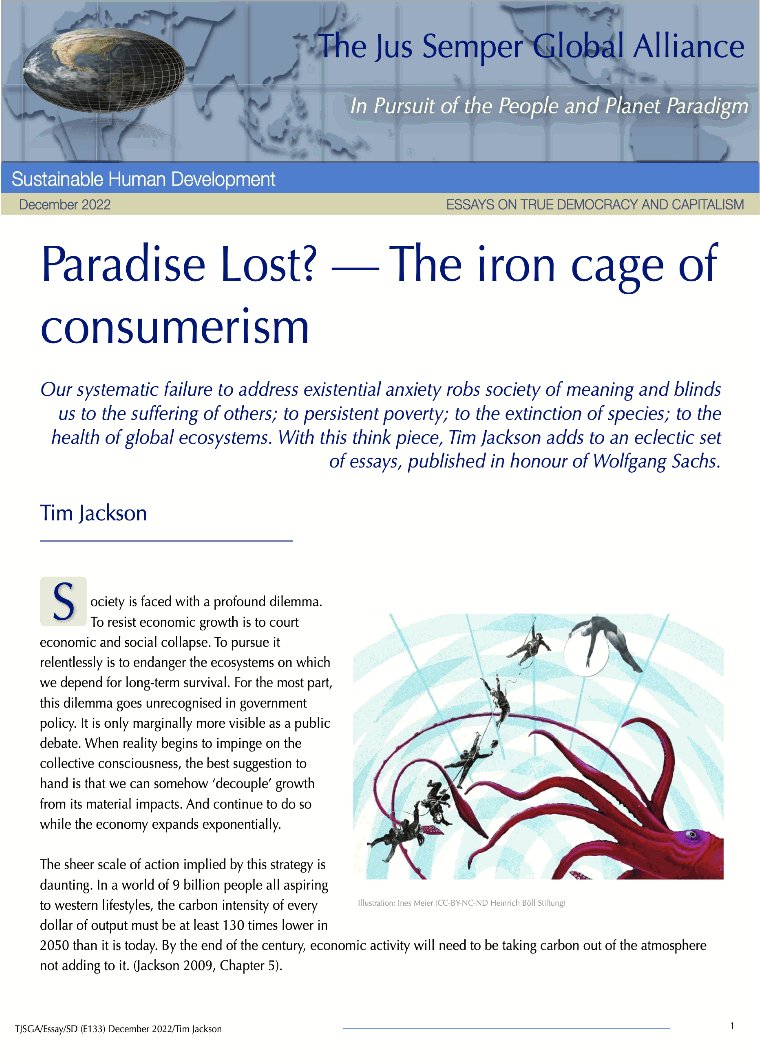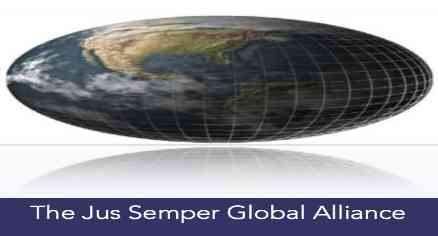Our systematic failure to address existential anxiety robs society of meaning and blinds us to the suffering of others; to persistent poverty; to the extinction of species; to the health of global ecosystems. With this think piece, Tim Jackson adds to an eclectic set of essays, published in honour of Wolfgang Sachs.
Tim Jackson The sheer scale of action implied by this strategy is daunting. In a world of 9 billion people all aspiring to western lifestyles, the carbon intensity of everydollar of output must be at least 130 times lower in 2050 than it is today. By the end of the century, economic activity will need to be taking carbon out of the atmosphere not adding to it. Simplistic assumptions that capitalism’s propensity for efficiency will solve all the problems of ecological damage and resource scarcity are almost literally bankrupt. We now stand in urgent need of a clearer vision, braver policy-making, something more robust in the way of a strategy with which to confront the dilemma of growth. This is the challenge to which Wolfgang Sachs has dedicated his remarkable energy and much of his life’s work. My aim in this short article is to address one aspect of this challenge: the role that anxiety – and our responses to it – play in consumer society. To make sense of this mission, I need first to sketch briefly the crucial dynamics of consumerism and to show how anxiety plays a role in it.
For a full read of this brief, click here or on the picture to download the pdf file.
|

- © The Jus Semper Global Alliance
| Home |  | Resources |  | Economic Data |  | Paradise Lost? — The iron cage of consumerism |


